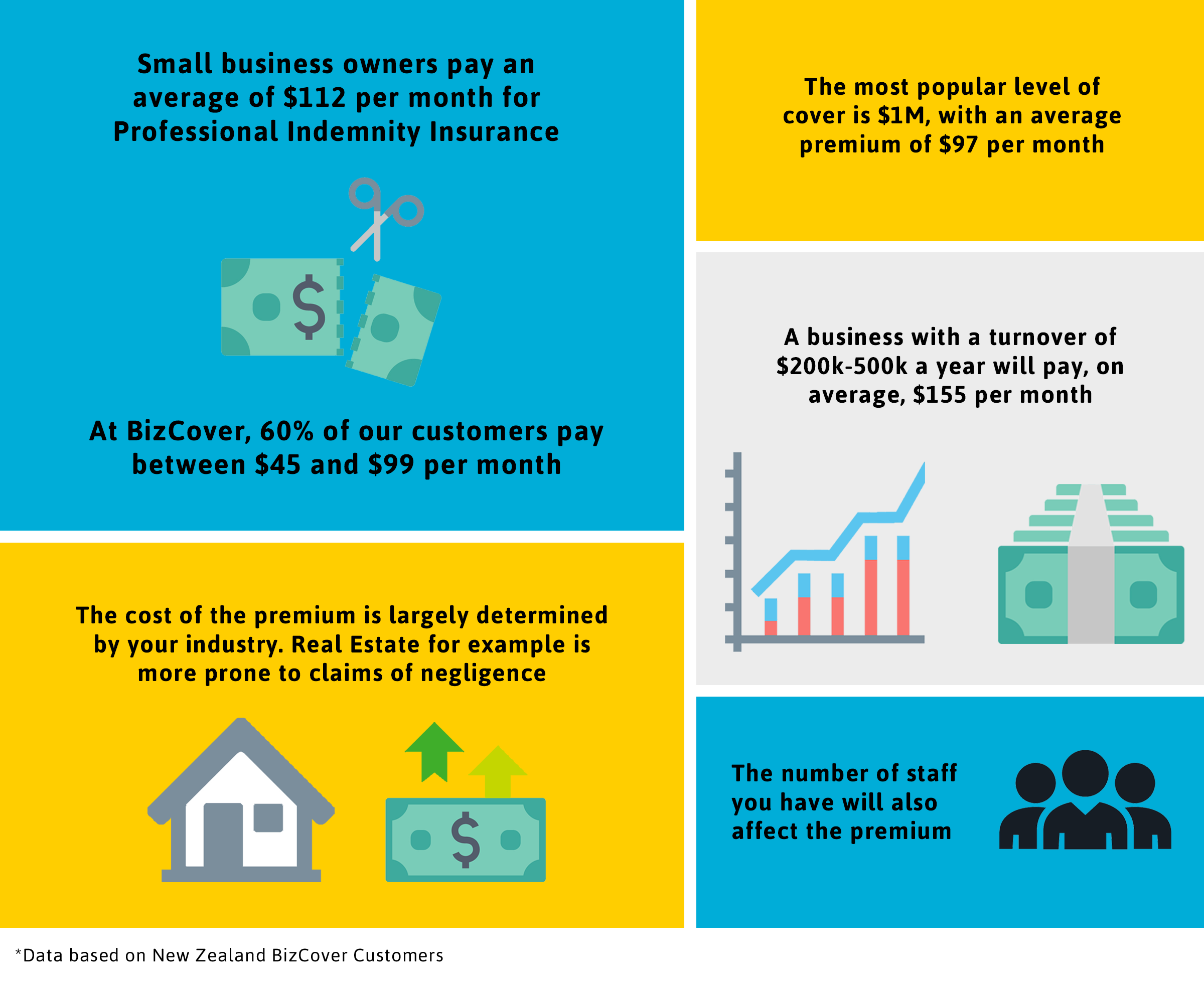How the cost of Professional Indemnity insurance is calculated
Ever wondered how the cost of a Professional Indemnity (PI) insurance policy is calculated and why one profession can often cost more than another? We look some of the key factors that that impact the cost of Professional Indemnity insurance.
Insurance policy pricing is generally calculated on risk factors and put simply, the higher the level of risks, the higher the premium. Some of these key factors include, but are not limited to:
- The type of business you operate – the riskier the industry or business, the higher the premium is likely to be
- Your business size and turnover
- The individuals being covered – qualifications for the job they are performing
- The amount of insurance cover you require
- Previous claims history
Your Profession / Industry type

Believe it or not, one of the biggest impacting factors when it comes to calculating the cost of your Professional Indemnity policy is the industry you operate within. Industries and services which have a higher risk of a claim occurring are going to attract a higher policy premium.
When applying for a Professional Indemnity policy, the insurer will assess the type of business activities you perform and calculate the likelihood of a claim as well as the potential cost of damages if you were to make a claim.
It is important to keep in mind, that each insurer has their own method and formula for assessing risk factors, meaning one insurer may rate your occupation as a lower risk than another insurer and vice versa.
The size of your business
As your business grows, so can things like your bank account, your work load and the number of people you employ. While growing your business is a good sign of how well things are tracking, it won’t be the only thing on the up. As a result, you may also notice an increase with your PI policy premium.
The same can be said for the number of employees you have. The more staff you have employed, the higher the chance of something going wrong and a claim occurring, meaning higher premiums.
This is because it is a strong indicator that your business is generating a lot of work, and the more work you do, the higher the chance of something going wrong and a claim being made against your business.
The level of cover
When there are increases in increments to your level of cover, you will not necessarily see an excessive increase in the premium. Other factors discussed above can also influence these figures.
For example, looking at the data of almost 500 BizCover customers with PI insurance in 2017, you can see that the average cost of $750K of cover is more expensive than the average cost of a policy with $1M cover limit, which could be due to the type of businesses that have opted for $750K cover, i.e. they have a higher risk compared to those who took out $1M cover.
Here are some of the factors you may need to consider when calculating which level of cover your business may need:
- Legislative and/or industry association requirements – often set minimum amounts are required for some types of occupations
- The size of the contracts you accept – think of how much you could be liable for if something goes wrong, i.e. are you a graphic designer consulting to small-scale firms or a structural engineer consulting on multi-million dollar developments?
- Do you have contracts with customers who require you to have a specific level of cover?
- The worst case scenario from the advice or service you provide – what are the maximum damages a client could claim for if they suffered financial or health losses?
- How many employees you have – generally, the more employees you have, the higher the cover limits you need. Imagine if you were unfortunate enough to end up facing multiple claims at once. Highly unlikely, but it could happen!
 If you want to get an accurate idea of how much a Professional Indemnity Insurance policy might cost you, the best way is to compare free instant quotes today!
If you want to get an accurate idea of how much a Professional Indemnity Insurance policy might cost you, the best way is to compare free instant quotes today!
This information is general only and does not take into account your objectives, financial situation or needs. It should not be relied upon as advice. As with any insurance, cover will be subject to the terms, conditions and exclusions contained in the policy wording. © 2024 BizCover Limited.




